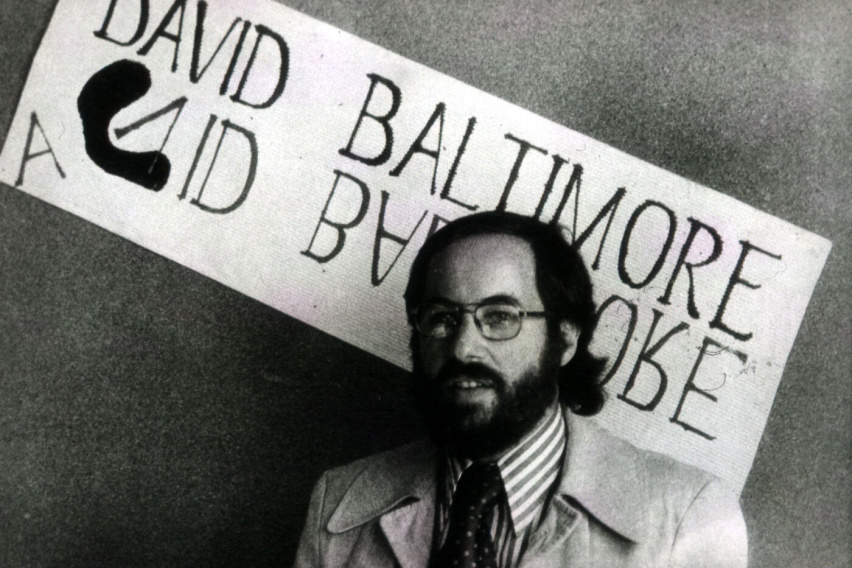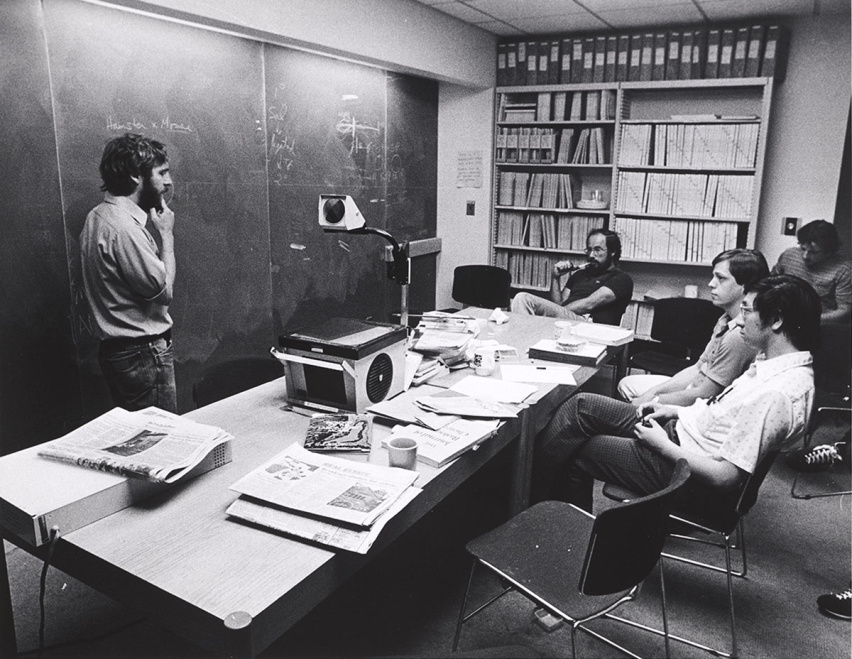
Baltimore was fêted in MIT fashion by students and faculty after a formal press conference following the announcement of his 1975 Nobel Prize.
MIT Koch Institute
September 8, 2025
With sadness, the Koch Institute marks the passing of Professor David Baltimore. A founding faculty member and formative influence behind the MIT Center for Cancer Research, Baltimore was not only a ground-breaking researcher but also a compelling and thoughtful voice for science.
In 1975, Baltimore received the Nobel Prize in Physiology or Medicine for his paradigm-shifting discovery of reverse transcriptase. He upturned the central dogma of genetics (that DNA is transcribed into RNA, which in turn is translated into protein), showing that genetic information can move bidirectionally between DNA and RNA. Reverse transcriptase is now widely used in research and in scientific and biomedical applications. Baltimore went on to receive numerous other awards and honors, including the National Medal of Science.

Baltimore’s commitments to intellectual rigor and science education characterized his work as a teacher and mentor and also as an academic administrator, leader, and advocate.
An academic and research leader, Baltimore also founded the Whitehead Institute for Biomedical Research, serving as inaugural director from 1982-1990, before becoming president of the California Institute of Technology (Caltech) from 1997-2006.
Baltimore was an influential and effective advocate for science, beginning with his historical role as co-organizer of the Asilomar Conference on Recombinant DNA in 1975 and continuing throughout his life. His advocacy work impacted national policy debates on topics such as recombinant DNA research—which plays a crucial role in cancer research—the AIDS epidemic, and most recently, genome editing. He has also served on a number of national advisory committees and headed professional organizations and initiatives, including the American Association for the Advancement of Science. Memorial profiles have appeared in MIT News, The New York Times, the Los Angeles Times, The Boston Globe, and elsewhere.